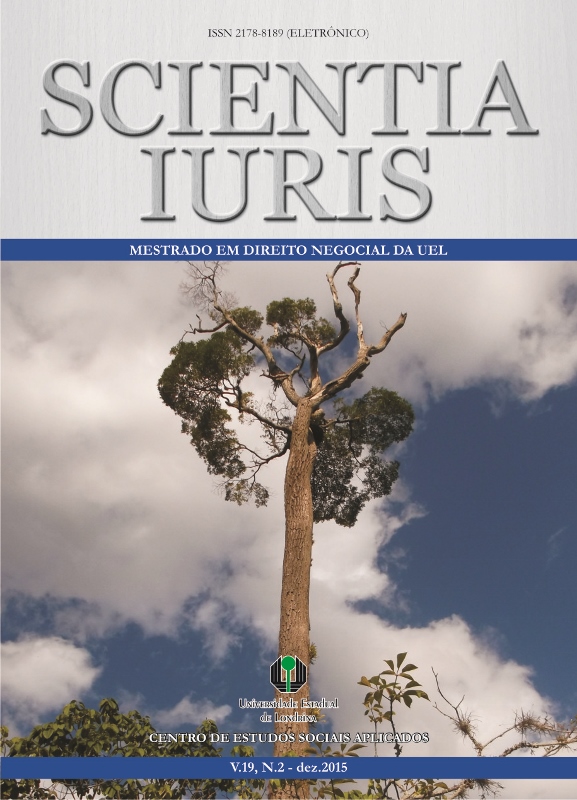Informality and economic inclusion through national statute of microenterprise
DOI:
https://doi.org/10.5433/2178-8189.2015v19n2p127Keywords:
Economic Inclusion., Informality, State InterventionAbstract
This study aims to analyze and conclude whether the current National Statute of Micro and Small Businesses (LC 123/06) effectively has the potential to promote the right economic inclusion in Brazil. The theoretical foundations of research have by reference the work The Capital of Mystery (2001) of Hernando de Soto, which features analysis and points out ways given the fact that capitalism did not promote inclusions, like the economy, in undeveloped countries, among which can include Brazil. Data confirm that informality is a reality that should concern governments face the negative externalities inherent in this economic and social environment. Hernando de Soto points out the need for legal decisions and inclusion policies at the market what he calls dead capital; potential that having access to legal mechanisms which guarantees them the right to property, seek the formal capital condition and can contribute to the positive dynamics of capitalism. The research aims in the Federal Constitution of 1988 the jurisdiction of the State (Art. 174 FC/88) for, through regulatory intervention (Legislative), supervision (Executive) and incentives (legislative and executive), promote opportunities and reduce informality. Such state initiative aims to access and stay in the market, and contribute to the effectiveness of the Economic Constitutional Legal Framework (Art. 170 FC/88) and national development goals (Art. 3 FC/88). Complementary Law 123/06, as amended, introduced general rules under Art. 179 of FC/88, so a uniform system of federal nature, which prescribes the right to a different legal regime for tax, administrative, social security and lending to microentrepreneurs.Downloads
Download data is not yet available.
Downloads
Published
2015-12-09
How to Cite
Monteiro, P. A. A., & Kempfer, M. (2015). Informality and economic inclusion through national statute of microenterprise. Scientia Iuris, 19(2), 127–154. https://doi.org/10.5433/2178-8189.2015v19n2p127
Issue
Section
Artigos
License
Copyright (c) 2022 Scientia Iuris

This work is licensed under a Creative Commons Attribution 4.0 International License.
The journal reserves the right to modify, in the original text of the submitted article, normative, spelling and grammatical mistakes in order to maintain the cultured standard of language and the credibility of the journal. The journal will respect the authors' writing style. Changes, corrections or suggestions of conceptual order will be sent to the authors, when necessary. In such cases, the articles will be re-examined. The final exams will not be sent to the authors. The published works become the property of the journal, in other words, its total or partial reprinting is subject to the express authorization of the journal. In all subsequent citations, the original source of publication shall be cited and in the case of Photographic Speeches, shall be approved by the original author. The opinions expressed by the authors of the journal's articles are of their sole responsibility.

















